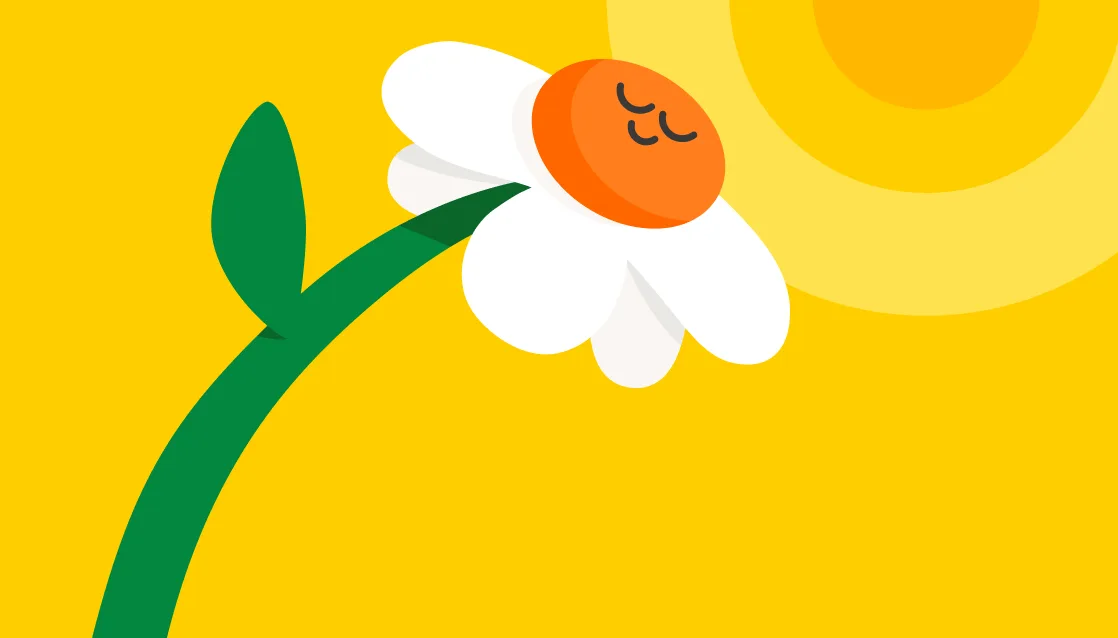Asking for help can be awkward. But it doesn’t have to be.

“If you ever need anything—any time of day or night—just call. I’m here for you.”
Anytime I’ve said, “Let me know if you need help,” I’ve meant it. But when others have said it to me, I’ve often doubted their sincerity. It can be difficult to believe that people genuinely want to help, making it even harder to ask for it.
During moments of doubt, it’s worth remembering that our colleagues, friends, and loved ones are human too. Sometimes, they need a shoulder to cry on just as much as we do.
Try a free mini meditation on breathing

Mini-Meditation: Breathe
1 min
Why asking for help feels difficult
Asking for help can feel like an imposition. We hesitate to burden others—busy people with kids, spouses, jobs, and their own challenges. We might worry that we won’t be able to return the favor. Humans are hardwired for reciprocity, and it can feel uncomfortable to ask for something when we feel we have nothing to offer in return.
Above all, asking for help requires vulnerability, which can feel like a sign of weakness. Many of us strive to avoid appearing inadequate, incompetent, or needy, especially in cultures like America’s, where self-reliance is highly valued.
Embracing vulnerability as strength
Embracing Vulnerability as Strength Experts recommend reframing vulnerability as a strength rather than a weakness. Brené Brown, a research professor at the University of Houston, highlighted this in her TED Talk on vulnerability:
“Vulnerability is the core of shame and fear and our struggle for worthiness, but it appears that it's also the birthplace of joy, of creativity, of belonging, of love.”

Brown emphasizes the importance of teaching ourselves—and others—that imperfection is part of being human. Her advice:
“You’re imperfect, and you're wired for struggle, but you are worthy of love and belonging.”
Recognizing vulnerability as courage takes practice. We often applaud others for being brave when they ask for help, but we fail to extend that same compassion to ourselves.
Building a culture of openness
When a friend reaches out, do you refuse to help or welcome them with open arms? That same sincerity applies when others offer to help us. As Charlie Chaplin famously said in The Great Dictator:
“We all want to help one another. Human beings are like that. We want to live by each other's happiness, not by each other's misery.”
Staying silent or refusing to ask for help perpetuates isolation. Conversely, asking for help fosters a culture of openness and generosity, giving others permission to do the same.

The workplace benefits of asking for help
This skill has applications beyond personal life. Business leaders prefer employees who feel comfortable asking for help. Companies work more efficiently when employees collaborate and share responsibilities. Organizations benefit when members seek the aid of more knowledgeable colleagues.
In the words of legendary UCLA basketball coach John Wooden: “We're all imperfect, and we all have needs. The weak usually do not ask for help, so they stay weak. If we recognize that we are imperfect, we will ask for help, and we will pray for the guidance necessary to bring positive results to whatever we are doing.”


Be kind to your mind
- Access the full library of 500+ meditations on everything from stress, to resilience, to compassion
- Put your mind to bed with sleep sounds, music, and wind-down exercises
- Make mindfulness a part of your daily routine with tension-releasing workouts, relaxing yoga, Focus music playlists, and more
Annual - billed at $69.99 USD/yr
14 days free
$5.83 USD/month
Monthly
7 days free
$12.99 USD/month


Stay in the loop
Be the first to get updates on our latest content, special offers, and new features.
By signing up, you’re agreeing to receive marketing emails from Headspace. You can unsubscribe at any time. For more details, check out our Privacy Policy.
- © 2025 Headspace Inc.
- Terms & conditions
- Privacy policy
- Consumer Health Data
- Your privacy choices
- CA Privacy Notice






